Stores on our radar
From an innovative hotel with a coffee shop but no reception and a waste-free restaurant run by a cocktail guru, to a mother-and-daughter plant shop and an adventure-inspired café built by a former oil and gas engineer.
The Pilgrm
Is one of the most original hotels to have opened in London in recent years, the result of a collaboration between owners Jason Catifeoglu, formerly of Zetter Townhouse, Steph Thrasyvoulou and his father Andreas, founder of My Hotels.
Visitors to The Pilgrm hotel in Paddington are greeted with a coffee shop, simple entry without a check-in - and a 200-year-old mahogany staircase. "When I was opening this hotel I had this sense that I wanted to do things very differently, challenge the way traditional hotels operate," says Jason. "I knew it was possible to create something very sustainable, very design conscious, but with a lot of integrity in the way it’s done; for example, how materials are sourced and where they are from."
Clearly, design matters. The royal-blue coffee cups match the tiles on the outside of the building. The interior feels playful yet respectful of the building’s heritage: the original parquet flooring and other period features have been restored, set against an eclectic mix of contemporary artworks. Formely an upmarket early Victorian town-house, the building had been a run-down two-star B&B when The Pilgrm team took over, and needed a substantial restoration. The founders enlisted Tim Hubbard of Sheffield-based design firm 93ft, who unearthed material and vintage fixtures and fittings from all over the UK – including a water fountain that once stood in the Natural History Museum. Upcycling, utilising British craftsmanship and employing as many original materials as possible from the UK were also important parts of the design process.
The joy of The Pilgrm is in what’s gone into the detail, but also what’s been left out. There are no phones, televisions, minibars, tea-and coffee-making facilities or air-conditioning in the rooms, with guests checking in online prior to arrival. "The more you pull on that thread, the more you realise just how much extraneous stuff there really is in hotels," says Thrasyvoulou. "Lose that and you can reappropriate your attention on things people really do value, like a great mattress, sustainability, super-fast wifi or the materiality of the room." "Our guests are people who love less faff," agrees Catifeoglu. "There’s enough noise out there today without us putting pieces of paper in their rooms telling them what to do and when. For us it’s about creating the space and letting people fill that how they want."
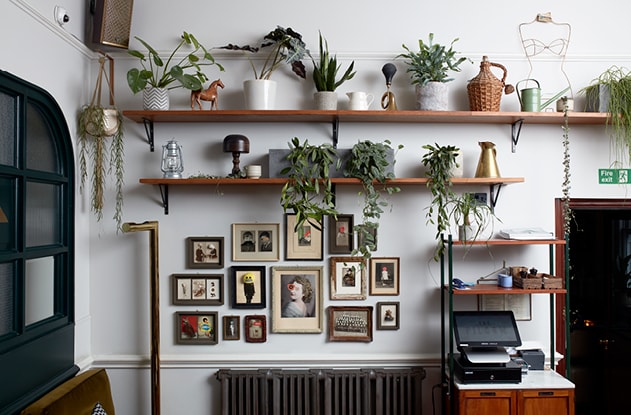
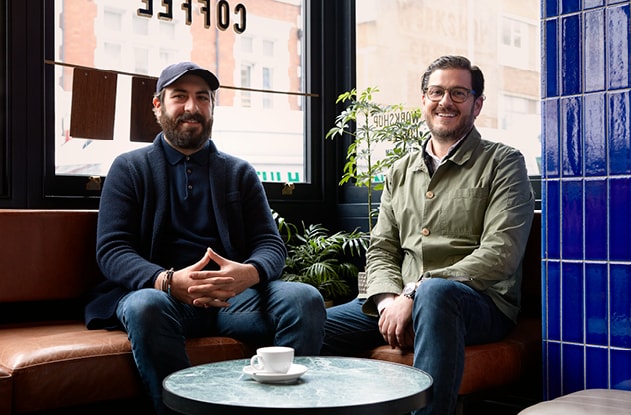
Go for...
Breakfast and brunch: An unfussy menu, made up of locally sourced ingredients and cold press juices.
Coffee: Every year, Workshop Coffee spend a few months in East Africa, South and Central America working with some of the world’s best coffee farmers to source their coffee. Once it’s back, they roast it in Bethnal Green.
Cocktails: The bar is a small but glamorous space of velvet upholstery and vintage furnishings, serving recipes supplied by some of the world’s best bars.
Value: The 73 rooms come in Bunk, Small, Medium and Large, all under £200, and many a lot less than that.
The location: The Norfolk Square address is around the corner from Paddington station, close to all the food, drink and nightlife around nearby King’s Cross and the new developments there.
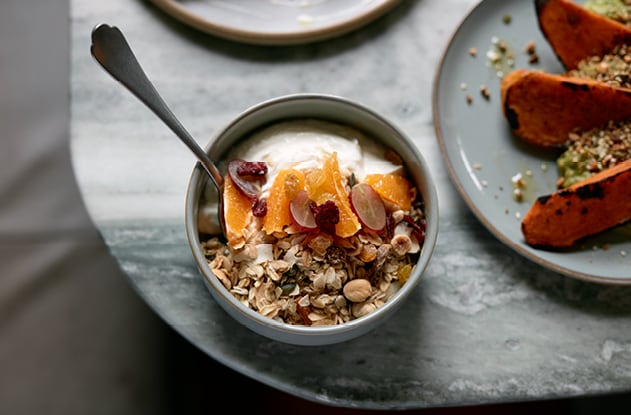
Cub
When Ryan Chetiyawardana joined forces with Doug McMaster, the owner and chef of zero-waste Brighton restaurant Silo, the result was a dining experience like no other - big on flavour and sustainable credentials.
London cocktail guru Ryan Chetiyawardana is known for constantly evolving his businesses. After first making his name with White Lyan (now Super Lyan, relocated to Amsterdam) and then Dandelyan, which gained top honours at The World’s 50 Best Bars 2018, Cub was launched just over a year ago in the heart of Hoxton as a ‘drinks-led dining experience’ that is strong on sustainability and experimentation.
Even in fast-paced London, Chetiyawardana’s enthusiasm for change is astonishing, but so far, the much-lauded Cub - and his collaboration with McMaster - appears set to continue. We caught up with Chetiyawardana to talk sustainability and how the pair came together to create their cocktail restaurant.
Cub, 153 Hoxton Street, London
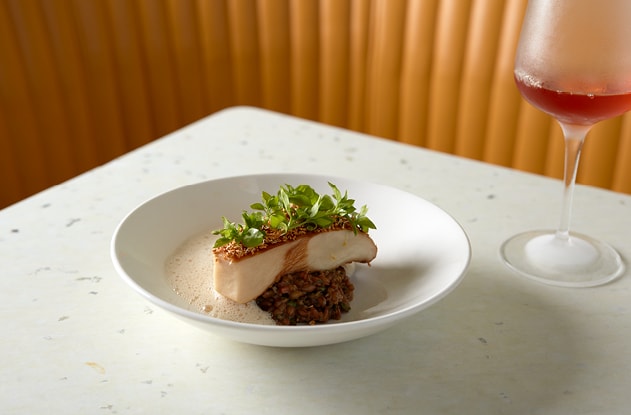
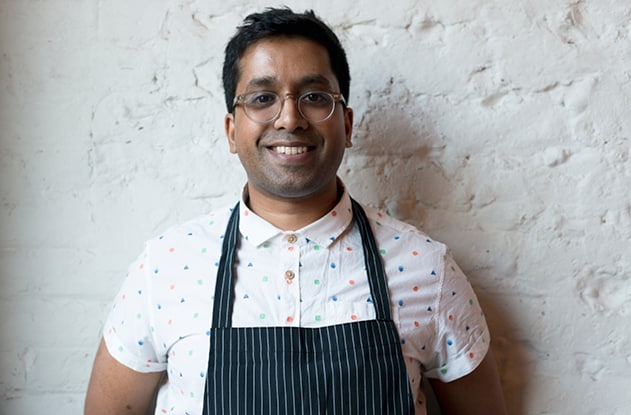
What’s the most surprising thing about dining at Cub?
‘A lot of the conversations around sustainability are very heavy, and often preachy. We wanted to show that people can have a great time, have a wonderful product and do good for the environment. I think a lot of people are surprised that it’s veggie and accidentally vegan most of the time, too.’
How did you and Doug come to work together?
‘White Lyan and Silo opened very close together, and Doug and I were suddenly thrust into the same circles (and articles) discussing waste. But I had actually been following Doug's work since he was in Australia.

When I took the Lyan team down for the first Christmas party, Silo blew us away, and Doug was clearly an exceptional spirit. When we did our Wine Not Wine pop-up in 2014, it was an obvious choice to pair with him, and we’ve been friends since. When it came to discussing Cub, it was only with Doug in mind.’
Have you noticed an uptick in diners’ interest in provenance in recent years?
‘Hugely so! It’s wonderful to see the rise in interest across the board. I think in recent years people have started to demand more information and authenticity. Conscientious practice doesn’t need to be about sacrifice, and people are now able to buy with a much better conscience while still getting delicious, honest and exciting things.’
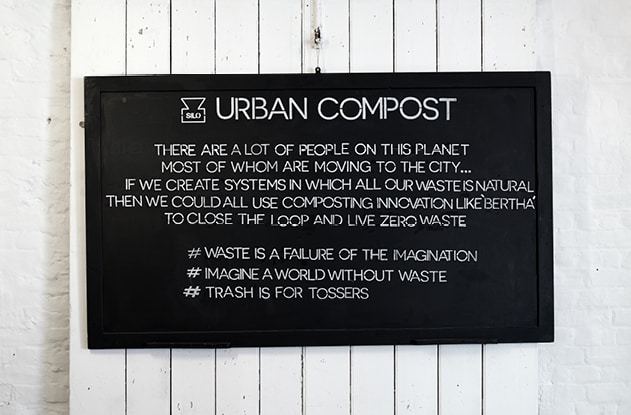
Is doing things sustainably a thread through all you do?
‘It’s always been important to me personally, and it was certainly a guiding pillar of the business. We’re not perfect, and there are some parts where we’re yet to explore it more thoroughly, but it’s certainly inherent to our outlook.’
What are some of the key challenges of setting those kind of standards for yourself?'
There are a lot of established systems that are easy to blindly accept, but asking the questions and demanding a better approach
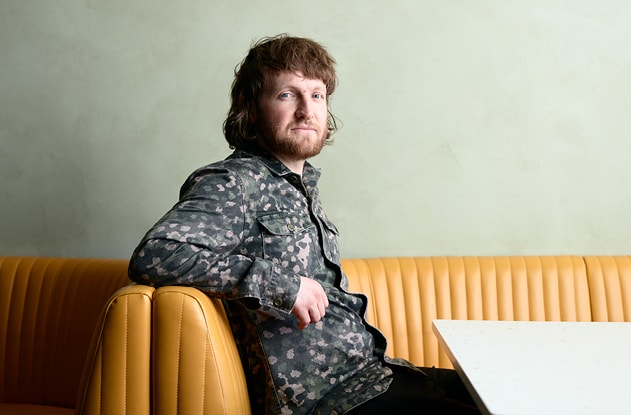
forces some amazing changes. It’s also important not to punish yourself along the way if you’re not meeting your goals as quickly as you hoped - every little change helps.’
Is there any food that’s impossible to match a drink to?
‘I’m yet to find one!’
Forest London
A visit to Forest, where the shelves of its East Dulwich and Deptford stores spill over with exotic ferns, ivy and jungle climbers, shows how indoor plants have become big business. Forest is owned and operated by mother-and-daughter team Fran and Alice Bailey, who started the company in 2013 as a spin-off from Fran’s original floristry business, The Fresh Flower Company. "I opened Forest just one street down from our East Dulwich flower shop," says Fran. "Originally the space was used as a combined flower workshop and plant shop. I had noticed that the popularity of houseplants was on the rise again, and soon the plants took over and the florist had to move out!"
The selection at Forest has since grown beyond plants to include homeware, beauty and lifestyle products – Aesop and Nkuku among them – along with craft classes in candle-making, flower arranging, macramé, terrarium building and calligraphy. Fran’s passion and DNA runs through the business. "I grew up on a cut-flower nursery where, as a child, I often worked with my brothers, helping out in the greenhouses," she explains. "My parents encouraged my love of horticulture, but I never expected my daughters to join my business. I am so glad of our collaboration – they’ve brought a fresh perspective to the business and been instrumental in our expansion, finding unusual plants, sourcing new brands and spotting trends."
The success of Forest tallies with that of other thriving plant shops in London and other cities, as a new generation of urban dwellers seek a green fix, possibly as an antidote to living among concrete and the pressures of the digital age. "Houseplants make us happier and healthier," affirms Fran. "Science shows they purify the air in our homes, lift our mood and reduce stress levels."
A visit to the Forest stores feels serene, and is as much about getting design and lifestyle inspiration as it is a retail experience, with staff on hand to give advice and many customers converting to workshop attendees. "People want to learn how to display and care for their plants, how to propagate to increase their stock and watch them thrive," says Fran. "Knowing about our plants increases our enjoyment of them."
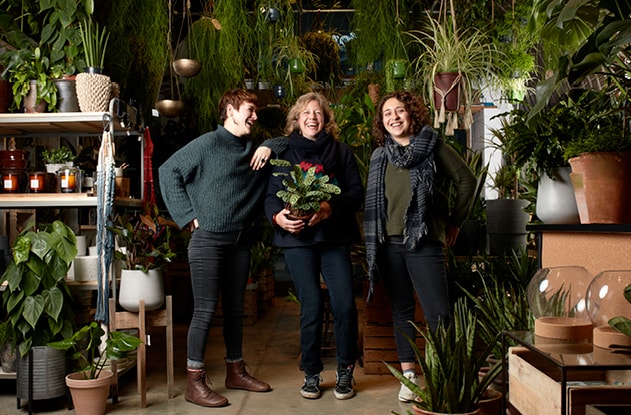
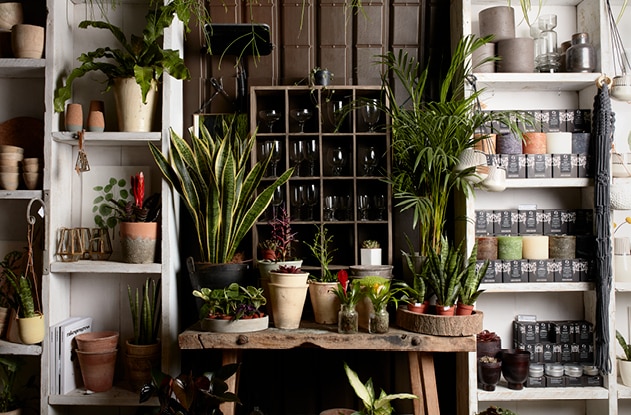
Forest's top tips for potting a plant

1. Buy a potting mix. You can get a soil mixture from a store which should include fertiliser, peat moss and organic soil.

2. Assign one plant per pot to avoid overcrowding. Make sure you choose a plant that doesn’t need too much sunshine.

3. Fill the pot to about an inch from the top, and lightly press down the soil to eliminate any air pockets. Water regularly.
Spoke and Stringer
Kristian Crews opened Spoke & Stringer in 2015. Before then he was an engineer on offshore oil and gas rigs, spending a lot of time on his own and dreaming of opening his own store one day.
Based on the Bristol waterfront, Crews’ multi-purpose space brings together the things he is most passionate about - surfboards, motorcycles, pushbikes and skateboards, as well as food. "We say we’re a café shop based around ride culture, which covers anything from bicycles, to boards, to motorbikes," says Crews. "But you don’t have to be into it all, or even any of those things, to come in and get a nice sandwich."
As well as the surfboards, wetsuit repair kits and bicycles, customers can browse an array of out-door adventure brands: sweaters, hoodies, tanks, beanies and jeans from the likes of Pukas, Deus Ex Machina and Amuse Society among others. In recent years, with its thriving food and drink scene, Bristol has proven there is culinary life outside London. So it comes as little surprise that the café, deli and restaurant are at the heart of Spoke & Stringer, which uses fresh and locally sourced ingredients. There’s good coffee, an award-winning brunch, pastries and pasties baked daily and San Sebastián-inspired pintxos in the evening.
On why he decided to set up his brand in Bristol, Crews says: "I can go surfing within an hour, or be in the hills in 10 minutes, and can still get to London easily."
Spoke & Stringer, Unit 1, Lime Kiln Road, Bristol
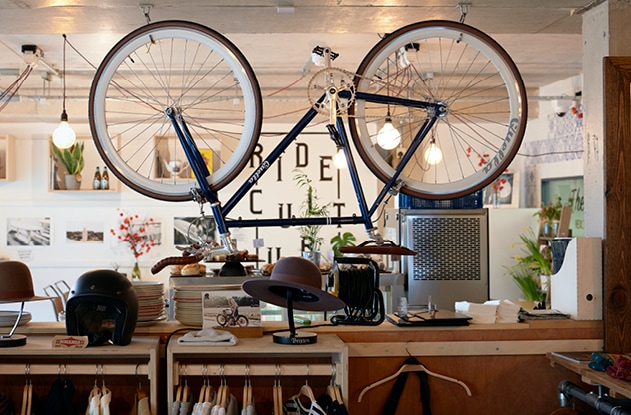
La Fromagerie
"I fell in love with cheese while I was skiing," reveals Patricia Michel-son. "I was in Meribel, I met the local cheesemaker and ended up bringing a 38kg wheel of Beaufort back with me and storing it in my garden shed for the next 3 months! That was how this whole thing started". ’The ‘thing’ Michelson is referring to is La Fromagerie, her London-based speciality cheese business, founded 28 years ago. From humble beginnings as a Camden Lock market stall, the business has gone from strength to strength, and is now made up of three bricks-and-mortar stores and a thriving online business that ships cheese all over the world.
The most recently opened space is in Bloomsbury – a sleek but characterful wine bar with velvet chairs, mood lighting and marble countertops – but it’s in the Marylebone store, with its huge cheese room off to the side, that Michelson feels most at home. Here, surrounded by wooden shelves creaking with condiments, ceramics, selected pickles and preserves, she recalls the early vision that drove her. "I had a yearning to have a shop that was all about engaging with customers and championing small independent producers," she recalls. "You know – the places you often don’t see unless you find yourself in a mountain village or a little market somewhere. I was told I wouldn’t make it in business because I was too niche, but I really wanted customers to feel they were somewhere they could get involved and learn something".
For the first few years Michelson worked alone, serving cheese from a table in the middle of a tiny shop in Highbury and steadily building her network of producers across Europe and beyond. In time, having caught the attention of top restaurants and renowned chefs, she moved across the street to bigger premises.
"In the early days, it was just a great adventure and we didn’t even consider different payment methods," she remembers. "But that changed when we moved to our Highbury shop."
As increasing numbers of customers started to flow through the door, Michelson knew she needed to look at her business processes and payment systems, and that’s when she started accepting American Express. It was also the natural point to start thinking about expanding the product range, but to do this the business needed to increase its cashflow capabilities.
As an American Express Business Cardmember, Michelson was able to keep cash in the business longer, which enabled her to invest in new products to grow the business while still being able to manage company expenses. Today, La Fromagerie stocks some 250 artisanal cheeses, along with bread, wine, fruit and vegetables, condiments and kitchenware – most of it still individually selected by Michelson at source. It’s all part of her value system: understand your product, care about its provenance and provide your customer with a deeply personal experience.
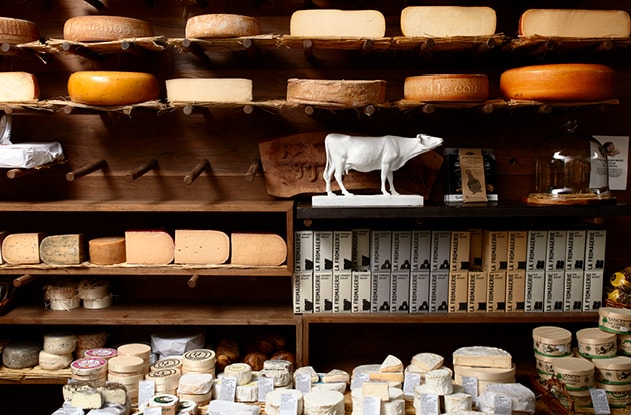
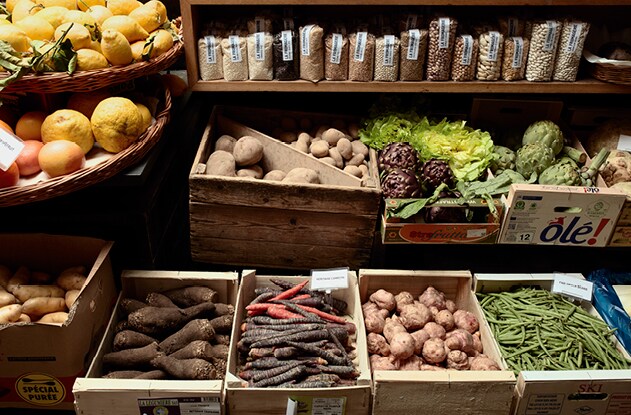
Crispin
With the arrival of Crispin, locals and corporate types alike have found a home of unpretentious, contemporary, all-day dining – a welcome haven of honest food and drink among the heavyweight office buildings of London’s East End. If you want to make an entrance with a new restaurant in the British capital, then opening in a kite-shaped structure made of shimmering zinc and glass is a good way to go about it. "Actually, it was supposed to represent a sail," explains Dominic Hamdy. "We’re right next to Tenter Ground, where they used to stretch the sails for ships, and that was the original inspiration."
Today, Hamdy and his business partner Oliver Hiam are taking five under the eaves of their striking standalone restaurant, pushing laptops and notepads aside to make space for the arrival of three flat whites. All around us, the brunch-time buzz is starting up. At one adjacent table a noisy young group of four are making exaggerated oh-my-god gestures over an iPhone; at another a suited-up pair are peering studiously at some kind of spreadsheet laid out on the blonde wood tabletop. Over by the till, near the entrance, piles of freshly baked pastries are calling to the handful of customers awaiting takeaway coffee. The hum isn’t likely to die down any time soon.
Since landing last August among the Spitalfields high-rises, Crispin has been winning fans of all stripes from breakfast through to bedtime. The draws are the cheery, airy vibe and fresh, seasonal menus built around the idea of lots of small plates and the least amount of waste possible. Hiam and Hamdy, who also run Aldwych coffee shop Lundenwic and the hugely successful scotch-egg business Scotchtails (and DJ in whatever downtime that leaves), are currently spending a lot of time at Crispin, juggling their various commitments during the day but often staying late at night in the restaurant while they hone their all-day dining concept.
You’d think that being housed within such eye-catching architecture would deliver an inherent advantage. But while the Crispin team collaborated with building designer Sheppard Robinson on the interior – employing plenty of wood to soften up the greys and glassy surfaces, and keeping the lighting soft for a low-key Scandi vibe – they soon discovered that the complex geometry presented plenty of challenges. "When we agreed the lease, it was half-built and we could just see the frame," says Hiam. "I mean, we were just obsessed with the shape, but it proved to be an absolute nightmare to work with. Look at all the connections on the ceiling: nothing was allowed to be drilled in, everything had to be clamped and hung flat."
One of the trickiest elements to resolve was the kitchen. Compact and open-plan, it’s integrated into the dining area, so there was the air extraction to deal with, but also very little storage space for ingredients. Fortunately, this chimed perfectly with the pair’s vision for the restaurant’s food offering – a contemporary menu with plenty of Mediterranean influences. "Because of the nature of the building and the fact we haven’t got much space, all the food is really fresh," says Hamdy. "Our menus might appear quite small, but this way we can keep it super seasonal, using the space that we’ve got."
The kitchen is the domain of head chef Henry Freestone, who is inventive with ingredients that are sourced as locally as possible, whether it’s Secret Smokehouse salmon, Dusty Knuckle bread, fruit and veg from Natoora, or meat from Hammersmith butcher HG Walter. Rather than working up a quarterly menu of 30 dishes, he creates a flexible weekly menu of only seven items – say, pork rib-eye with red pepper and hazelnuts, or buffalo ricotta and spinach ravioli – and works hard to synergise the day and evening kitchens.
There’s an option for ‘one of everything’ for dinner, and an emphasis on sharing. "We try to limit wastage as much as possible," says Hiam. "If there are carrots on the dinner menu, there’ll be carrots in the sandwiches or soup at lunch, so you’re not using too much fridge space." The pair are passionate, too, about their wine list, which is strong on natural, low-intervention and biodynamic wines from smaller producers. "We’re treading a line between this super-progressive, radical, natural vibe, and the more classical clean-drinking wines that some people are more accustomed to," explains Hiam. "Part of being good at selling the wine is judging what customers like; we often give them a taste and get them involved in the process, and that’s when they get on board.
In the end, the pillars we’re pushing are the same as a lot of new restaurants: seasonality and provenance. People want to know where their meat and bread comes from; you can ask us where any of our produce and ingredients originate and we can tell you. And we’re proud of that."
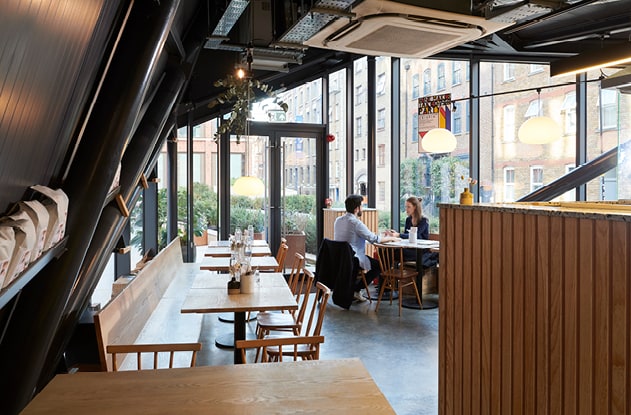
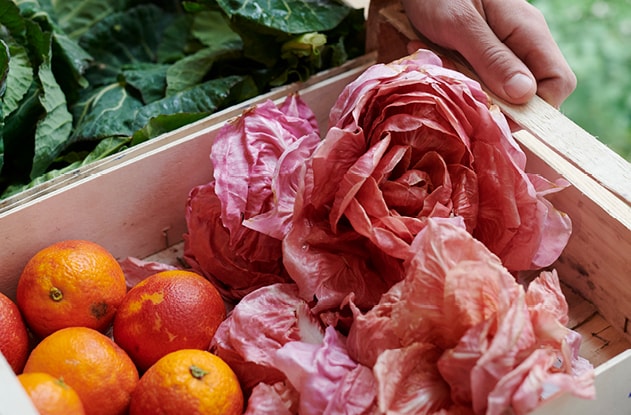
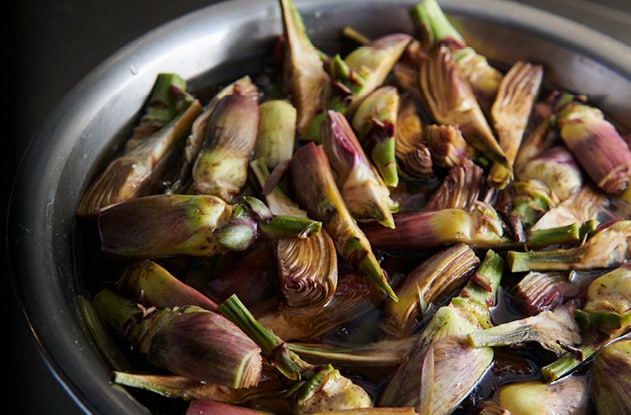
American Express means solutions
American Express has a range of Cards and payments solutions to meet the needs of a growing business, no matter what the size.
As a Business Cardmember, you'll be able to manage your cashflow and grow your business more easily, all while earning great rewards.
What's more, by accepting American Express, you'll also offer your customers more choice in the way they pay and attract a loyal, high spending customer base to your business. From a merchant perspective, you'll also benefit from opportunities to market your business to our Cardmembers.





